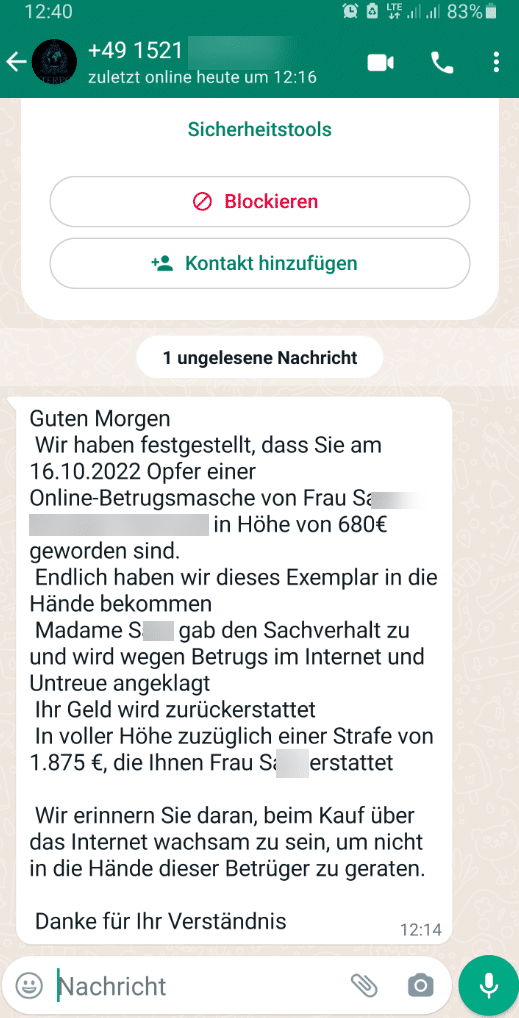Attempted fraud via messenger services such as WhatsApp has long been no longer uncommon. In recent months, however, a worrying development has been observed in Lower Saxony: fraudsters are contacting their victims again, referring to previous fraud cases.
This sophisticated approach by the perpetrators, which refers to incidents that actually happened and real details, poses a significant danger to those affected.
The new scam: targeted fraud using known information
These fraud attempts are particularly insidious, in which the perpetrators refer to previous incidents such as the grandchild trick, messenger fraud or goods fraud. The perpetrators use real names and correct damage amounts to create credibility.

(Source: polizei-praevention.de )
The aim is to get victims to hand over sensitive data such as account information, ID or access data. In some cases, scammers even request wire transfers or redirect to fake websites under the pretense of trying to recover lost money.
Procedure and protective measures for these WhatsApp messages
Recipients of such communications should exercise extreme caution. The police and other authorities do not make contact via messenger services and never request actions such as providing sensitive data or transfers. Anyone who receives such messages should report them to the police immediately.
If data has already been transmitted or transfers have been made, it is important to contact the bank immediately and file a report.
questions and answers
Question 1: What should I do if I receive such a fraudulent WhatsApp message?
Answer 1: Ignore the instructions in the message, do not disclose sensitive information, and report the incident to your police department immediately.
Question 2: How to tell if it is a scam?
Answer 2: Pay attention to atypical wording and the lack of official communication channels. In such cases, authorities will not contact you via messenger.
Question 3: What to do if you have already become a victim of fraud?
Answer 3: Contact your bank immediately to stop further transactions and file a police report.
Conclusion
It is important and imperative to raise awareness about such scams. Regularly check new fraud methods from trusted sources.
Be vigilant and protect yourself from cybercrime.
Source: polizei-praevention.de
For more information and prevention tips, subscribe to the Mimikama newsletter and register for our regular online lectures and workshops .
Also read:
Notes:
1) This content reflects the current state of affairs at the time of publication. The reproduction of individual images, screenshots, embeds or video sequences serves to discuss the topic. 2) Individual contributions were created through the use of machine assistance and were carefully checked by the Mimikama editorial team before publication. ( Reason )

